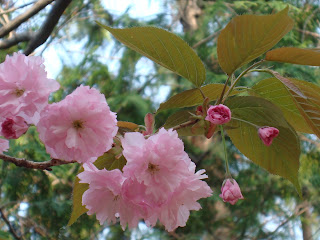Stream, sunshine, stars, and stark realities of a Korean farm village
From the thick forests a stream flows generously with its cold and clear sweet water. The greens of the horizon safely protect a lush valley planted with rice abundant of ripening panicles and some fields covered with greenhouses of other farm products. Every now and then a thick formation of cloud would descend only to disperse momentarily as thick clouds unveil the sun. It is heartwarming sight to behold the infrequent hugging of mists and forest trees.
Although it is summer the valley’s coolness is that of autumn. The place is called
This seems to be the prevailing condition among industrialized country. Korean farm is not far from the present condition of
This alarming condition was shared by a Japanese woman farmer who used to work in NGO and lives in the city now doing organic farming in a village. She was one of those articulate speakers in what was dubbed as “Rural Regeneration in Asia” the main theme for the 2008 Summer Regional School a program collaborated on by Inter-Asia Graduate School of NGO Studies (IGONS), Sungkonghoe University, and the Asian Regional Exchange for New Alternatives (ARENA) and The May 18 Memorial Foundation. Aside from the intensive lecture and discussion, a day of eco-study-tour was made in a farming village.
At the
After our sumptuous lunch we were divided into groups, assigned each a fishnet and a bottle to fill at least 3 living objects from the stream. Students and city folks that we were, we enjoyed the activity a great deal, disturbing the peaceful flow of the stream with our noises and laughter; turning over stones and big rocks looking for our prize catch. Cheering is heard everytime a poor creature was caught. At the final count our group got the most – 8 living things, 3 fishes, a small frog, a snail and other water insects. One group claimed they lost some of their insects since they were eaten by the hungry and anxious frog, so they suggested opening up the frog’s belly so they could be pronounced winner. I also enjoyed floating and being swept by the stream’s current when everyone starts splashing water on each other.
We were then brought to their organic tomato farm and treated with its luscious taste. On the way we saw beehives on groves scattered on crannies and nooks by the road side. We were told that one of the field have uneven rice plants growing since they were planted by elementary pupils from the city who help plant the rice when they came for their home-stay tour.
Again we were divided into two groups: one group to do rice cake and the other group to harvest corn. I joined the rice cake group. Steamed rice was put in a log-trunk mortar and two people each with a pestle beat the rice rhythmically. So we took turns, country versus county were paired even the ladies were not spared. After making the rice into sticky dough we rolled them into cylindrical shapes and cut them into smaller size and spread soya powder to prevent it from sticking with the rest. The other group harvested corn and feed the cows with the corn husks.
After dinner we had a chance to interact with the villagers. They enthusiastically responded to all of our questions about their lives. One halmoni (granny) would excuse herself for not being able to answer but ends up saying the most. Although their situation and scenario seems to be depressing, it is contrary to the happiness and enthusiasm they shared with us for a night stay. I can resonate on this with the sharing of a once to be student leader who turned farmer. He said at the summer school that mobile phone factories won’t feed people and mobile phones can’t be eaten. So he decided to stay in the village and become a farmer to produce food for the people. The hard work and the perspiration keeps him at peace with himself amidst nature’s beauty and bounty.
We had a camp fire. The harvested corns were boiled and served together with junk foods, beer and makoli (Korean rice wine). Exchanges and discussion in small groups were spontaneously clustered. And everyone was in awe of the sky’s wonderful constellation. Indeed a very rare scene living in the city.
We left the place after breakfast and the never ending poses for photographs. Sadness in the countenance of the villagers was discernible. The old ladies who cooked our meals were misty eyed waving us goodbye.
I wonder when will be the next time city nuisance like us will disturb their normal village life, always in consonance with the change of the season, at peace with the flow of the stream, nurturing the ecological balance of their village. I just wish that the place gets populated by younger people who would love and care the place like they do.
As we depart the place the sun gets slowly revealed from the tall trees of the mountains. A new morning, blessing the village with sunshine; the villagers generosity and warm heart was sunshine for us to bring back home as our blessings.
(This article was originally posted at the website 518.org/eng )

Comments